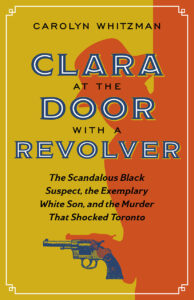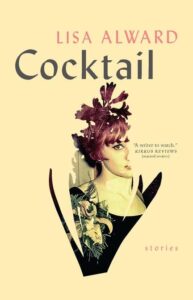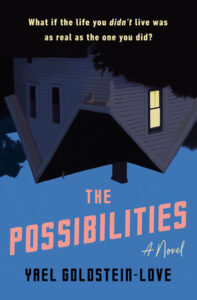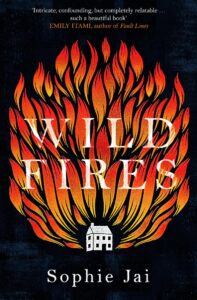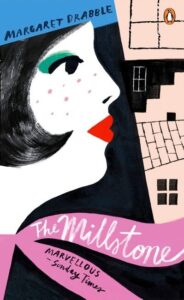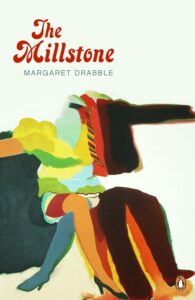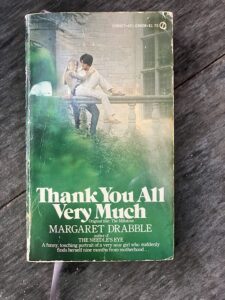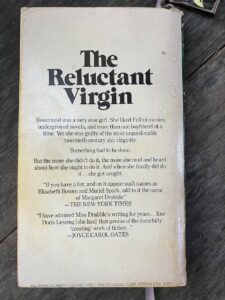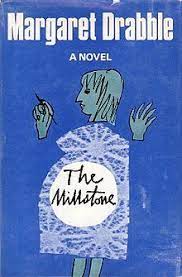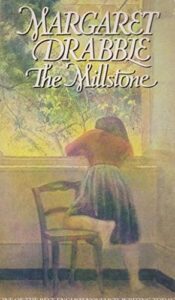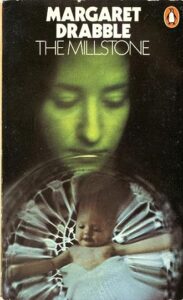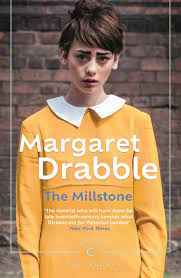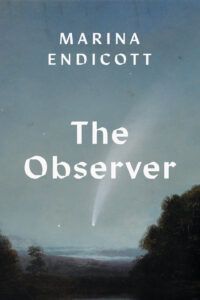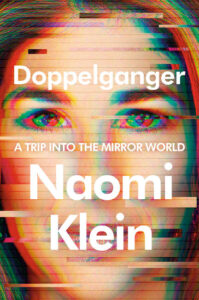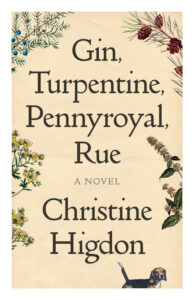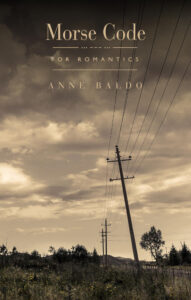October 18, 2023
Clara at the Door With a Revolver, by Carolyn Whitzman
A sad reality of my life is that there are more books than time, which means that many review copies that arrive on my doorstep don’t end up getting read (and for many of these, I was never the target audience anyway). And usually my calculation for what to keep and what to pass along works out fine, but it sure didn’t in the case of Carolyn Whitzman’s Clara at the Door With a Revolver, which I may have even received two copies of, but I don’t read a ton of nonfiction anyway, and never got around to which I was terribly sorry about once I’d attended the Toronto Arts and Letters Club’s panel for the Toronto Book Awards and listened to Whitzman read from and present about her book, which was a side project to her academic work on housing policy. Because the presentation was fantastic and Whitzman made clear that this story of a Black woman in 1890s’ Toronto who dressed in men’s clothing and famously carried a gun who managed to be acquitted by an (all white male, obviously) jury for the murder of a wealthy young man has a lot to tell readers about both its time and our own.
All of which primed me to be altogether ready to be hand-sold a copy of this book by the amazing Mary Fairhurst Breen (whose memoir I read awhile back!) at the Spacing Store on Saturday, and am I ever glad I bought it. I had my Covid booster on Saturday afternoon and spent a grey and blustery Sunday resting it off and speeding through this fast-paced story that’s gripping and fascinating, but also so rich with historical detail about, say, what life was like for a Black woman in 1890s Toronto, how the city’s robust newspaper scene (there were seven dailies) helped to define the stories they told, or that boathouses were notorious scenes of carnal activity (who knew!). There is also a cameo by Arthur Conan-Doyle, and lots about housing, and my suspician that Whitzman’s work would turn out to be fresh, engaging, vivid and relevant turned out to be spot on.
October 16, 2023
Cocktail, by Lisa Alward
I adored Lisa Alward’s Cocktail, a short story collection whose compelling sepia tones (both on the cover and within the text) manage not to undermine how fresh and vibrant each and every single story is. These are stories about houses and the secrets they hold, about fractured families and the limits of family life—the end of childhood, a marriage unravelled. In the title story, a woman looks back on her parents’ parties, and the strange guest who ended up in her bedroom. In “Old Growth,” a woman travels with her very-ex-husband to see the off-the-grid property he’s thinking of buying and contemplates the ways in which they’re forever connected. “Hawthorne Yellow” tells the story of a new mother whose paint stripping reveals haunting images beneath the layers (recalled in the book’s cover). “Orlando, 1974” begins, “My father says Stephen only threw up because of the Hawaiian pancakes and can still go to the Magic Kingdom (and Stephen’s stomach becomes this story’s Chekhov’s gun). The ex-husband from “Old Growth” is the protagonist of “Bear Country,” set a few years earlier, in which a father escapes his troubled son (and a difficult life) by flirting with a stranger. The mother of an adult son grapples with his connection to her ex-husband’s partner in “Hyacinth Girl.” In “Maeve,” a woman in a moms’ group probes the mysteries of another woman’s life. “Wise Men Say” is a love story of a different kind, as a woman reconnects with a partner she wasn’t kind to years ago and things don’t turn out the way she imagines. “Pomegranate” is a collectively narrated story of teenage girls and their hunger. “Bundle of Joy” was my very favourite story, one that’s agonizingly “cringe,” as the kids say, about Ruth, a mother who shares a difficult relationship with her adult daughter who has just given birth to a baby, and Ruth’s not quite good enough intentions gone oh-so-wrong as she struggles to connect. In “Little Girl Lost,” a woman encounters an artist and his daughter at two pivotal times in her life. And finally “How the Smoke Gets in Your Eyes,” a story that contains lifetimes about an elderly widow whose children don’t understand the decisions she made in her marriage, and all those things that seem like a small price to pay for love.
October 11, 2023
The Possibilities, by Yael Goldstein-Love
Considering that I am someone whose new novel contains the line, “The children we have make any other world impossible*,” a novel that’s world’s away from this one but also taps right into notions of postpartum and parental anxiety (ASKING FOR A FRIEND also contains the line, on its very first page, “Parenthood…was—if you were lucky—like friendship, a story without end. The alternative too awful to contemplate. But what this also meant, of course, was that it never stopped, there were no breaks from the possibility of something new and worse to worry about around every single corner.”) then you won’t be surprised to know that Yael Goldstein-Love’s THE POSSIBILITIES tapped into something real and fundamental in my own psyche, but it also hooked (and fascinated) me as a reader in a deep and most visceral way.
And if you’re also an anxious sort when it comes to parenting, then you will know what it means to “ride the possibilities,” what Goldstein-Love’s protagonist described as the “car swerve” feeling, where it seems like some disastrous outcome has just been averted by a hair’s breadth. (Another line from my novel—”And how do you measure that line between everything that could have happened and what actually did?**). An idea that becomes literalized in this fantastic (in all senses of the word) speculative/literary mashup in which new mom Hannah’s debilitating anxiety actually becomes a superpower as she has to voyage into the multiverse to search for her missing baby (who is missing because, for babies, the boundaries between worlds and possibilities are especially blurry and thin).
A Wrinkle In Time, by Madeline L’Engle, meets Rachel Cusk’s A Life’s Work? I adored this novel, which almost caused me to cancel Thanksgiving because all I wanted to do was sit down and read it straight to the end.
*This line was actually borrowed from my wise friend Rebecca Dolgoy
**The great thing about being a book blogger is that I get to quote extensively from my own book in reviews of other peoples’.
October 5, 2023
Wild Fires, by Sophie Jai
Sophie Jai’s debut novel Wild Fires (which is nominated for the 2023 Toronto Book Award, was shortlisted for the 2023 Kobo Emerging Author Award and Winner of 2023 Fred Kerner Award for Fiction) is a dizzying, mesmerizing puzzle of a novel, a container for a story about a container for a family, which is to say, a house. A three story house on an ordinary street in West Toronto that is home to the most of the Trinidad-Canadian Rampersad family, a house fled by narrator Cassandra years before to get away from the whispers, the secrets, the spectre of death—but of course, the last is inescapable, and Cassandra is called home after the death of her cousin whose entire life had been tragically touched by the deaths of his brother and his mother before him.
In the house on Florence Street, doors stay shut, mouths stay closed, secrets closely guarded, and Cassandra’s need to make sense of her family’s story—to have it to told to her, and to be able to understand it—is firmly resisted by her mother and her sisters, though these women find other outlets besides story for conveying their emotions, including rage and powerful, enormous grief. And so Cassandra has to find other more roundabout, indirect ways to get closer to what she wants to know, her family throwing up obstacles and diversions all the while, the house on Florence Street absolutely riddled with metaphorical trapdoors and landmines whose triggers are impossible to avoid.
Wild Fires is a wily text, a most compelling literary mystery, a novel whose heart seems elusive at first—with so much being, literally, unspeakable. But by having to a take a long and winding route into the house on Florence Street—there are no shortcuts here—the reader will find themselves so deeply invested and absorbed in this tale, and unable to forget it.
September 29, 2023
Rereading The Millstone
My official origin story as a Margaret Drabble devotee begins with the battered paperback copy of The Radiant Way I picked up from an Osaka bookshop back in in 2004, and fell in love with, and how I spend the new couple of years reading through her entire backlist (as well as new releases like The Sea Lady, The Red Queen, and The Dark Flood Rises). In 2020, I ventured to go back and reread all her novels in order, but the plan fast sputtered out because earliest Drabble was never my favourite anyway—I found the preoccupations of her characters terribly unfashionable, or perhaps it was just my ancient Penguin paperbacks. I reread the first two and then no more, until I partook to reread The Radiant Way again last winter, and found the reading experience just as glorious as it as twenty years ago (and the book somehow even more timely). And then, not long after, I reread A Natural Curiosity, which I didn’t love as much, but that was a high bar, and now I’ve gone and just reread Drabble’s third novel, The Millstone, after listening to a discussion about it on the Backlisted podcast, and now I want to get to Jerusalem the Golden next, so it seems I’m rereading them these books after all, just a little bit out of order.
My TRUE origin story as a Margaret Drabble devotee is a little bit different from that, however, as Drabble’s The Millstone was actually the first Drabble I ever read, before I even knew what a Margaret Drabble was. I even vividly recall reading it in late December 2001, the week between Christmas and New Year, back at my student apartment in Toronto, which was quiet because my roommates had not returned from their holidays. My elderly paperback (more about that in a moment) purchased for $3.00 at a secondhand store (likely Eliot’s on Yonge Street) because “Margaret Drabble” was a name I vaguely recognized, and because I’d started to realize how I’d wasted all my idle time in my undergraduate years reading writers called Thomas, and D.H., and F. Scott, and Ernest (and Morley and Robertson), and (apart from two ubiquitous Canadian examples) almost nobody with a name like “Margaret” at all.
And I am not sure that anybody has ever missed the point of a novel at all as I missed the point of The Millstone in 2001, but I am refusing to take full responsibility for this, and perhaps you’ll agree that I shouldn’t when I tell you about the particular edition of the novel I was reading, which wasn’t called The Millstone, or even A Touch of Love (which had been the title of the film based on the novel), but instead Thank You All Very Much, which had been the US title of the film, and the cover is atrocious, depicting nothing like anything that happens in the novel at all (and I actually I think that all of these titles are terrible).
The cover wasn’t even the worst of it though, instead the back cover copy, which I’ve pasted below. Clearly, someone else HAD missed the point of this novel as much as I had, which was whoever was employed to write the jacket copy. Clearly they didn’t quite know how to market this book, first published in 1965, about a young intellectual woman who becomes pregnant and opts to raise her child, to find herself and her place as a woman in society as a mother (but, most essentially, as nobody’s wife). But here’s how they put it on the back of my book, all of which describes the first 5 or so pages of the book, and no more, and also seems to be about another character altogether:
The Reluctant Virgin
Rosamund was a very now girl. She liked Fellini movies, underground novels, and more than one boyfriend at a time. Yet she was guilty of the most unpardonable twentieth-century sin: virginity.
Something had to be done.
But the more she didn’t do it, the more she read and heard about how she ought to do it. And when she finally did do it…she got caught.
So can you blame more for finding this novel remarkably unfashionable? A bit weird? What is my fault, however, is that I never made the connection that the only reason this whole plot takes place at all (and seems so old fashioned) is because it’s set in the 1960s, when abortion was illegal in Britain. Along similar lines, when I ended up pregnant by accident myself just a handful of months later (which I hadn’t seen coming in December, the tail end of a long era in which I’d be quizzed about sexual partners while donating blood, and just laugh and laugh) and had an abortion, it never occurred me that it hadn’t even been fifteen years since Canadian women had gained the right to abortion access. I was still very young, and to come of age in the 1990s in the western world was to see one’s own experience as outside of history.
I also think that I was too young and unschooled/earnest to realize just how funny this novel was, how ironic. Lines like, “My attempts at anything other than my work have always been abortive. My attempt at abortion, for instance, must be a quite classic illustration of something: of myself, if of nothing else.” Rosamund buys a bottle of gin with the plan to drink it to end her pregnancy, but then her friends come over and drink it all, and then (a bit drunk) she elects to take a very hot bath, but the gas heater didn’t work properly and she couldn’t get the temperature right, and the water ends up being freezing. Maybe I just didn’t go in for abortion humour in quite the same way in 2001.
I was also too young to fully get the meaning of a paragraph like this (and Drabble’s sentences are hard to parse! There are some parts I still don’t understand right now: “At times I had a vague and complicated sense that this pregnancy had been sent to me in order to reveal to me a scheme of things totally different from the scheme which I inhabited, totally removed from academic enthusiasms, social consciousness, etiolated undefined emotional connections, and the exercise of free will. It was as though for too long I had been living in one way, on one plane, and the way I had ignored had been forced thus abruptly and violently to assert itself. Really, it was a question of free will; up to this point in my life I had always had the illusion at least of choice and now for the first time I seemed to become aware of the operation of forces not totally explicable, and not therefore necessarily blinder, smaller, less kind or more ignorant than myself.”
The Millstone is not “old fashioned” (though the cover and copy surely are!), but instead a literary artifact of a particular moment in history, and a very social kind of novel too about class and gender, and the lives of educated women, and socialized medicine, and learning that one possesses a body, that one is a woman after all, and what that means, and all the other people such a distinction connects one to. (It’s also a terrifically funny novel about the literary scene, onto which Rosamund is an observer, as several of her friends are novelists, and the petty rivalries of that scene rang very true for me and made me feel better about my own plentiful foibles and insecurities.) I also now see that this book is beginning of my very favourite part of the Drabble canon, which is women who revel in the chaos of motherhood but who aren’t wives—Rosamund is a foremother of Liz Headleand and Kate Armstrong for sure. I also love that there are whole passages on jigsaw puzzles, which Rosamund takes up to pass the time and calm her brain, which I wouldn’t have noticed when I read this book in 2001, but Margaret Drabble hadn’t written her jigsaw puzzle memoir The Pattern in the Carpet then.
Though I must have reread this book at least once before, an experience of which I have no memory, and—unlike in 2001—there is no date on the inside page, but there instead a conspicuous bracket on page 97, on which Rosamund considers how—as an unmarried mother—nobody ever dares to say to her, “I bet you wouldn’t be without her now.” A paragraph that would have sang to me after my first child was born, words that reflected my truth: “And in many ways I thought that I would prefer to be without her, as one might reasonably prefer to lack beauty, or intelligence or riches or any other such sources of mixed blessing and pain. Things about live with a baby drove me into frenzies of weeping several times a week, and not only having milk on my clean jerseys. As so often in life, it was impossible to choose, even theoretically, between advantage and disadvantage, between profit and loss: I was up quite unmistakably against No Choice.”
Not old fashioned at all, I suppose, but instead a message from my future!
September 26, 2023
The Observer, by Marina Endicott
Tomorrow night (Wednesday September 27) I’m appearing in Hamilton with Marina Endicott as part of a fundraising event for the Hamilton CFUW with an author talk and live music. Books will be for sale and available for signing after the event. Tickets are $15, support the CFUW scholarship fund, and on sale online or at the door! Buy yours now!
(I was also fascinated to see that, in both our novels, somebody cooks eggs that nobody ends up eating and which sit for too long before they’re finally thrown out…)
*
Oh, how I loved this quiet, meditative book, which was not about quiet or meditative things, but instead about violence, abuse, trauma, PTSD, deprivation, loneliness, and LOVE. A novel that doesn’t try to explain, just the facts, ma’am, but between the lines lies such depth and heart-wrenching emotion, with such beautiful prose floating right on the surface: “Does someone teach us to see beauty, or does the world show it to us all the time?”
It also just sparkles with its depictions of the rituals and rhythms of ordinary life, all the waiting, and enduring, and surviving. (“Not one to go to pieces, Kendra had brought a spinach dip in a bread bowl.)
The Observer is a fictionalized story of the Endicott’s own experiences as an RCMP spouse in rural Alberta, her protagonist, Julia, a playwright who arrives in Medway with her partner Hardy, an outsider in every way, but she receives a particular vantage point working for the local newspaper, from where the novel gets its title, and the novel is indeed her observations with minimal editorial, and her keen eye gives us a vibrant sense of the community, for better or for worse, and these stories of particular people because of a treatment of people in general, of society, of humanity: “But I needed more information, more data—not for gossip, but to understand Hardy’s situation and my own, to understand and choose how to live my own life.”
The Observer would make a really interesting companion to Kate Beaton’s Ducks, a different kind of story about rural Alberta, about being an outsider, about work, and male dominated fields, and violence, and loneliness, and such environments are bad for women and ultimately bad for everybody.
It’s a novel about light in the darkness (literally—its opening image is that of a comet), of being soft and porous in hard place, about hope amidst the harshness of reality, and about how sometimes all it ever takes to keep going is the miracle of *just one good thing.*
September 25, 2023
Doppelganger, by Naomi Klein
I first found out about the Naomi problem in 2019 when I read No is Not Enough: Resisting the New Shock Politics and Winning the World We Need, and my best friend was horrified, and I was confused about why she was horrified, and then when she figured it out, she told me to google “Naomi Wolf” and “chemtrails,” so I did, and finally understood, or at least kind of, because what actually explains what happened to Naomi Wolf?
And so that question, “Whatever happened to Naomi Wolf?” is something I have periodically wondered about ever since then, the question becoming more and more relevant as Wolf’s own influence grew and the stakes got higher, as she spouted Covid misinformation through 2021 and onward. A question that seemed also relevant as so many apparently intelligent and curious people disappeared down conspiracy rabbit holes (ie the UK book blogger DoveGreyReader who went full QAnon before disappearing from the internet altogether, or the bestselling Canadian historical fiction writer who, as of Saturday but not thereafter [once someone had flagged it in their Stories], was following something called Gays Against Groomers on Instagram).
Last week was a fascinating time to be reading Naomi Klein’s latest, Doppelganger: A Trip Into the Mirror World, which is a consideration of “No Logo” Klein’s own personal branding problem as she has frequently been confused with Wolf over the last decade or so, but also an investigation of how the trajectory of liberal-darling turned far-right poster-child Wolf has a lot to teach us about radicalization, misinformation, political stratification, and the failures of political systems of countries like Canada and the US whose vacuums bad actors like Wolf and her comrade Steve Bannon, and so many others have rushed to fill. [Please note that I called referred to Wolf as “Klein” throughout this whole paragraph, and just had to go back and change it. The struggle is…weird?]
Last week was a fascinating time to be reading Doppelganger because the Mirror World of conspiratorial thinking was front and centre after supposed “parents rights”/anti-LGBT protests across the country on Wednesday that really were Convoy 2.0 with the same PPC signs and Fuck Trudeau flags (and I fear that well meaning people responding to these ding dongs with sincerity and heart are letting conspiracy nutjobs set the rules of engagement, like, it’s only a “culture war” if the other side mobilizes right back, playing right into their hands, which is exactly what they want, especially *play,* it all being just a game to these people anyway, rather than any of their ideas being worth responding to with consideration and logic. It is not irrelevant that, as Klein notes in her book, Steve Bannon dreamed up his ideas for world domination during a period in which he was working for an online gaming company)
In Doppelganger, Naomi Klein comes as closer as I’ve ever seen anyone come to explaining just what the heck is going on here, connecting the dots on a vast canvas, making sense of the nonsensical, in a way that will be familiar to anyone who’s read Klein’s work before, but also weaving in elements of memoir that are new to her work and which add a real sense of humanity to these stories in which so many of our fellow humans have come to seem almost alien.
Because of this book, I think I know finally (kinda, sorta) understand what was happening at the house I drove by in Norfolk County during the summer of 2022 that was flying a swastika out front, apparently a protest of the federal government. An anti-authoritarian protest that has one running authoritarian propaganda on one’s flag pole, the guy who hates Nazis so much that he’s appropriated their symbols, which is how it happens in the mirror world.
Doppelganger is a study of doubleness, and doubles—Klein and Wolf; left and right; self and avatar; who Wolf was and who she’s become; of how each “side” in this situation is imagining the other is living in a crazy dreamworld; of Israel and Palestine; of foundlings and how some parents of autistic children describe their offspring in similar terms, seemingly “normal” children replaced by another; about how so much far-right rhetoric employs language and ideas from progressive causes and can also thereby render language as meaningless. She writes about buffoonish monsters like Boris Johnson and Donald Trump, and even Putin, and describes “pipikism”—a term borrowed from a Philip Roth novel—”the antitragic force that inconsequencializes everything—farcicalizes everything, trivializes everything, superficializes everything.” She writes, “It doesn’t just farcicalize what they say; it farcecalizes what many of us are willing and able to say afterward.”
But of course any mirror is not just about its reflection, but also about what it tells us about ourselves, and Doppelganger is also a fascinating self-examination, as well as an actually kind and sympathetic study of what might have happened to Wolf and what particular aspects of her character make Klein a bit uncomfortable for what they suggest about Klein herself (and the last chapter, in which Klein describes them meeting in the early 1990s when Klein was a reporter for the University of Toronto’s student newspaper, The Varsity, is generous, weird and extraordinary). She also makes clear that social movements are the way out of this mirror world nightmare we find ourselves in, acknowledging that some conspiracies are indeed quite real (ie disproportionate power in the hands of a few unelected dudes who have too much money, for example) and showing that collective efforts are the only way to meet the pressing challenges of future (ie climate change, fear of which is provoking all this terror in the first place, such refusal to look reality in the face).
“Calm is resistance,” Klein writes in Doppelganger, quoting John Berger’s response to her earlier book, The Shock Doctrine, and I thought about that line too in the context of last week’s hateful demonstrations, how responding to panic and terror with panic and terror is simply a perpetuation of a narrative I don’t want to be a part of.
“The effect of conspiracy culture,” writes Klein in her new book, is the opposite of calm; it is to spread panic.” In Doppelganger, Klein suggests a deeper, more thoughtful way of acting (and thinking) in response.
September 19, 2023
Gin, Turpentine, Pennyroyal, Rue, by Christine Higdon
Christine Higdon has followed up her award-winning debut with the most extraordinary new novel, Gin, Turpentine, Pennyroyal, Rue, a book that somehow manages to be everything all at once: action-packed, artful, playful, timely, timeless, weighty, light, compelling historical fiction that maps so beautifully onto right now. Set in Vancouver in the 1920s, it’s the story of the four working-class McKenzie sisters and their supposedly divergent paths over the course of a year—infertility, pregnancy, an illegal and nearly fatal abortion, and a lesbian relationship–and how these paths are not divergent at all, but instead irrevocably connected to bodily autonomy, choice, and women’s liberation. The 1920s’ backdrop is fun and compelling, but the glitter stark against the darkness of what came before—the sisters watched loved ones return from WW1 with minds and bodies broken, or else not return at all; their brother dies in the flu pandemic; their mother is depressive and addicted to opium. The novel moves between their points of view, including the secrets they keep from each other, with a sweep that’s at once both intimate and cinematic, the narrative held together by an omniscient beagle (of course). A truly brilliant literary (and feminist) achievement, and just a wonderful read, I loved this book so much!
August 23, 2023
Another Week in Paradise
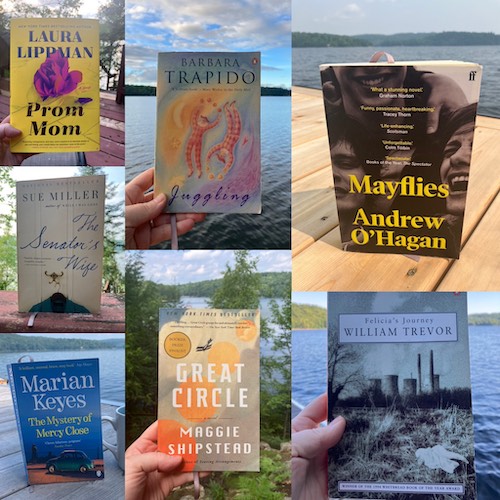
A+ vacation reads last week. Laura Lippman never disappoints. I LOVE Sue Miller and am reading through her backlist; this one was my favourite Marian Keyes novel I’ve ever read, about a depressive Private Investigator trying to find a member of a reunited boy band all the while experiencing suicidal ideation; my fourth Barbara Trapido novel, a contemporary story told in the fantastical structure of a Shakespearean comedy; THE GREAT CIRCLE, which I did enjoy but skimmed in parts; Andrew O’Hagan’s truly beautiful story of lifelong friendship; and William Trevor, William Trevor Forever! I love him.
August 10, 2023
Morse Code for Romantics, by Anne Baldo
I was soliciting picks for 49thShelf’s Summer Books lists when Stephanie Small from The Porcupine’s Quill got in touch. “It might not look like one from the cover,” she wrote, “but actually, I think Anne Baldo’s Morse Code for Romantics makes a good summer read,” which is an understatement if I ever heard one. For this is a book that is so steeped in summer, a collection of stories with sand between their toes, set along the shores of Lake Erie, scrappy cottages and rundown motels. With lines like “We don’t know it yet but we will never be bigger, or more real, than we are right here this summer. We will keep fading and shrinking, in small ways, forever always, after this.”
For the most part, these are standalone stories—the exceptions are a handful in which characters reappear—but they’re linked by geography, by recurring imagery, and themes which make this collection such a satisfying book. They’re linked too by being crafted to a standard of real excellence, and I’m thinking of the image on the book’s cover, of the power lines connecting the utility poles, without which I’d probably be employing a metaphor right now along the lines of beads on a string, one gleaming gem right after another.
These are stories of working class people, of people who’ve dropped out of the working class, of Italian-Canadians in the Windsor region. Most are fairly contemporary, the exception being “Marrying Dewitt West,” about the arrogant 19th-century naturalist investigating reports of a sea monster in the depths of Lake Erie who becomes the object of a wily young woman’s affections. And the sea monster image occurs also in “Monsters of Lake Erie,” which begins with an explanation of sonar equipment used in attempts at detecting the Loch Ness Monster: “I thought when you had been lonely for a long time you gained a similar sort of ability with people. To look at them, beaming out a silent pulse, and be able to glimpse the dark, monstrous shapes of their own loneliness lurking underneath the surface.”
There are a lot of lonely people and dark, monstrous lurkings in Morse Code... But peonies too, and shimmering light, a daring to hope, to dream. Magic and mermaids—”But people always forget that mermaids are monsters.” Sparks and fire.
